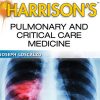Effective Goal-Directed Therapy in TBI Patients May Improve Outcomes
journals.lww.comThe purpose of this study was to estimate the impact of goal-directed therapy on outcome after traumatic brain injury (TBI). Goal-directed therapy was applied to standardize care in patients with moderate to severe traumatic brain injury, who were enrolled in a large multicenter clinical trial.
882 patients were enrolled in this study within 4 hours of injury after non-penetrating traumatic brain injury characterized by Glasgow Coma Scale score of 4–12.
For the 882 patients enrolled in Progesterone for the Treatment of Traumatic Brain Injury III, mortality was 12.5%. Prolonged time spent in transgression was associated with increased mortality in the full cohort for hemoglobin less than 8 gm/dL, international normalized ratio greater than 1.4, glucose greater than 180 mg/dL, and systolic blood pressure less than 90 mm Hg.
The Progesterone for the Treatment of Traumatic Brain Injury III clinical trial rigorously monitored compliance with goal-directed therapy after traumatic brain injury. Multiple significant associations between physiologic transgressions, morbidity, and mortality were observed.
These data suggest that effective goal-directed therapy in traumatic brain injury may provide an opportunity to improve patient outcomes.

















